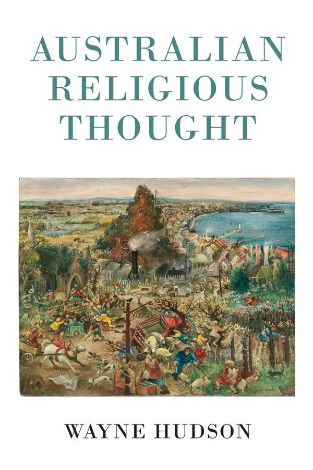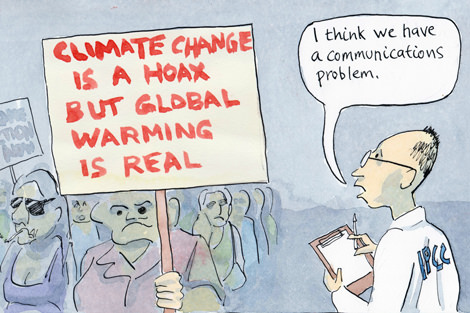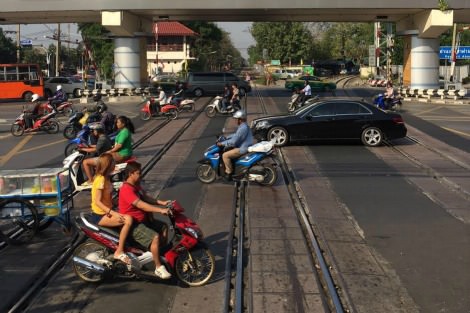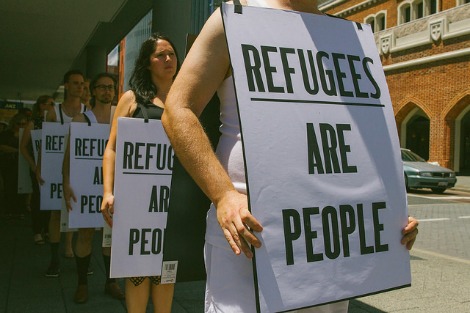Keywords: The View On The Way Down
There are more than 200 results, only the first 200 are displayed here.
-

AUSTRALIA
- Marcelle Mogg
- 05 May 2016
18 Comments
Even the International Monetary Fund recognises that the best way to grow an economy is to reduce the divide between rich and poor, ensuring that all people have a chance to participate in the social and economic life of a country. The Coalition government remains resolutely opposed to this growing body of evidence, continuing to rely on economic structures that entrench disadvantage, then blame the poor for their fate. The Budget provides tax cuts to the rich and service cuts to the rest.
READ MORE 
-

AUSTRALIA
- Kate Galloway
- 30 March 2016
6 Comments
Around half of Indigenous prisoners in Roebourne Regional Prison are there on driving offences. Many Indigenous Australians do not have birth certificates and therefore cannot get a drivers licence. Yet those who live in remote areas often have no means of transport other than by car. When they are caught driving unlicensed, they receive a fine, and since many are unable to pay, they are consequently are jailed. And as we all know, jail is a particularly risky place for Indigenous Australians.
READ MORE 
-

RELIGION
- Frank Brennan
- 22 March 2016
6 Comments
I offer no public judgment of Pell, and unlike many other commentators I'll await the findings of the royal commission. I have however been outspoken about his right to a fair hearing and natural justice, not because I am a priest but because I am a human rights lawyer who cares about the universal application of the rule of law. It is when a representative of institutional religion like Pell taps into the generic religious sensibility or moral consciousness that the real work of Australian religious thought is done.
READ MORE
-

ENVIRONMENT
- Greg Foyster
- 11 March 2016
3 Comments
The best known examples of framing come from American cognitive linguist George Lakoff. He argues that George W. Bush replaced the phrase 'tax cuts' with 'tax relief' to reframe paying tax as an affliction. Embedded in those two words is a neo-conservative worldview against government intervention in the private sphere. If you accept the term, you absorb the worldview. In a similar way, a few words could build political will to tackle climate change. The problem is no one is sure what they are.
READ MORE 
-

INTERNATIONAL
- Catherine Marshall
- 12 February 2016
3 Comments
My little sisters and I stand at the window and stare out at the passing world. The youngest is not yet two, and though she will grow to be six feet tall one day, for now she must stand on tiptoes to take it all in. We see children running beside the train, laughing and waving. My mother throws them the sandwiches left over from yesterday's lunch. Railway lines take the path of least resistance and the routes of most gain, and so they bring us right up close to the people who live alongside them.
READ MORE 
-

AUSTRALIA
- Kerry Murphy
- 05 February 2016
6 Comments
The practice of governments using the Parliament to change the law in order to win court cases is unfair, as only one party to a court case has the power to do this. The M68 case decided on Wednesday, which challenged the detention and transfer to Nauru of asylum seekers, was effectively won by the government because they changed the law retrospectively to make sure they would win. No retrospective fix will be possible for people who fled persecution only to face a punitive and hostile policy.
READ MORE 
-

AUSTRALIA
- Andrew Hamilton
- 21 January 2016
7 Comments
In our response to the forced movement of peoples we must recognise that our national identity is not built primarily on uniformity of religion and race but on adherence to the values that are enshrined in our social institutions. We must also recognise the way in which our own prejudices and fears affect the judgments and proposals we make, and exercise a proper scepticism about making quick judgments and drawing universal conclusions from particular events such as those in Cologne.
READ MORE 
-

INTERNATIONAL
- Bronwyn Lay
- 14 January 2016
3 Comments
As I marched for Remembrance Day in our small village in France, I wondered, 'How long will these villages keep these ceremonies? When will someone decide these wars are too long ago or too far away?' Two days later, Paris was attacked. The news came like war does: sudden and violent. Then came declarations of a state of emergency and the closing of borders. My eldest daughter was over the border in Switzerland without a passport. War starts in increments, in the small ordinary worries of families.
READ MORE 
-

ARTS AND CULTURE
- Tim Kroenert
- 14 January 2016
If you're going to apply a blowtorch to an institution as wealthy and litigious as the Church of Scientology, you might best be advised to first apply a magnifying glass. Alex Gibney details the dark side of the movement: its dubious tax-exempt status; allegations of psychological and physical abuse of current members and harassment of former members. But he is equally interested in unpacking the nature of belief in Scientology: what draws people to it, and also what drives them away.
READ MORE 
-

AUSTRALIA
- Justin Glyn
- 11 January 2016
4 Comments
Health care professionals at the Royal Melbourne Children's Hospital have begun to do what could not be achieved by reports from the UN Special Rapporteur on Torture and Australia's Human Rights Commission. The doctors and staff are refusing to release children they treat back to the detention which caused their problems in the first place. By this brave act has begun the slow task of pouring daylight (always the best antiseptic) into this gaping wound in Australian society.
READ MORE 
-

AUSTRALIA
- Frank Brennan
- 10 December 2015
I first met this Tony on my regular visits here to Darwin when he was working at the North Australian Aboriginal Legal Aid Service and then when he set up the mediation services under the auspices of Anglicare. In later years I knew him when he was your Anti-Discrimination Commissioner. He was a quiet, considered, gentle, strong and principled man. On Human Rights Day, it is only fitting that I honour Tony by offering some reflections on the architecture for human rights in Australia, on the contemporary human rights controversies, and on the way forward for better protection of the human rights of Aborigines and asylum seekers, two marginalised groups who had a special claim on Tony's sympathies.
READ MORE
-

RELIGION
- Frank Brennan
- 03 December 2015
The consideration of medico-legal problems in the public square of a pluralistic democratic society keeping pace with profound technological change is often marked by simplistic assertions, precluding considerations of comprehensive world views, whether religious or philosophical. It is now commonplace for doctors to be told to leave their consciences at the door, as their patients are consumers and they are suppliers and of course the market decides. Debates about law and policy are often resolved with simplistic assertions about individual rights and autonomy, with little consideration for the public interest, the common good, and the doctor-patient relationship. Even conscience is said to be a matter for contracting out. This evening I ask whether there are more compelling ways to resolve medico-legal dilemmas, while conceding a limited role for law in determining the range of acceptable answers.
READ MORE